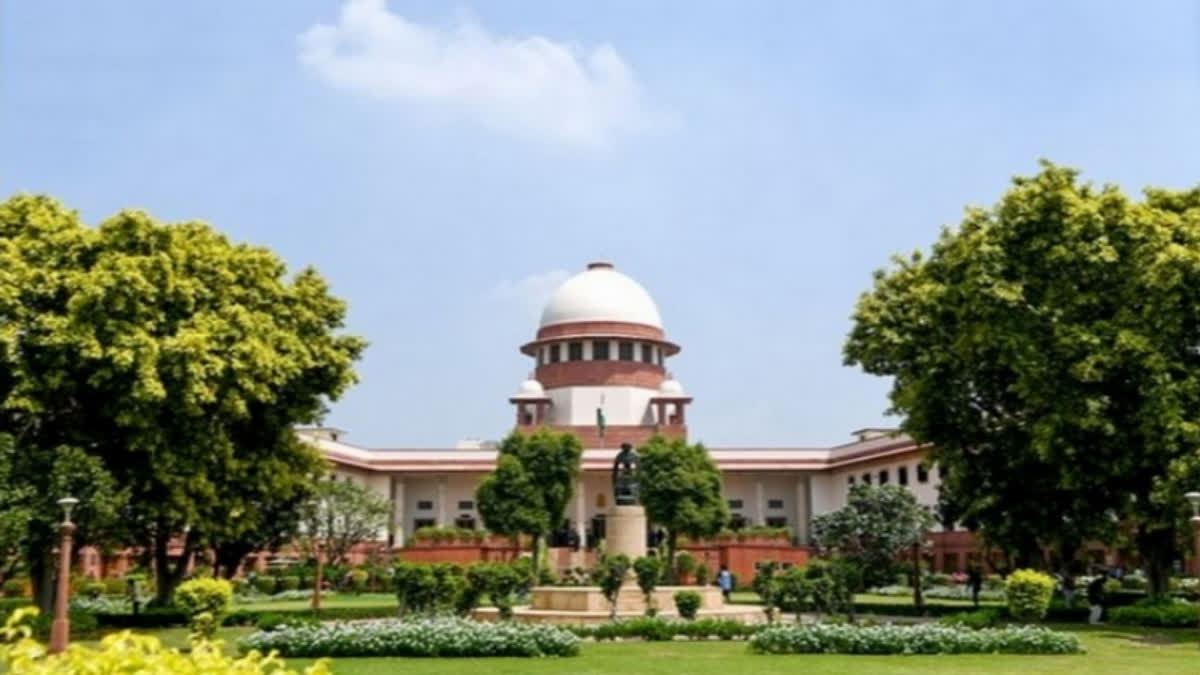New Delhi: The Supreme Court on Monday closed the proceedings on a plea raising the issue of duplicate voter entries and also deletion of voter names from the electoral rolls, saying that it is satisfied with the response furnished by the Election Commission of India (ECI).
A three-judge bench led by Chief Justice of India D Y Chandrachud said that the ECI has filed a comprehensive affidavit, where it clarified the procedure followed in case of demographically similar entries and photo similar entries. However, the counsel for the petitioner, NGO Samvidhan Bachao Trust, insisted that the ECI has not done any exercise.
However, the bench, also comprising Justices J B Pardiwala and Manoj Misra, said the bench is satisfied with ECI's response and no further directions are required in the matter and added, "we accordingly close the proceedings at this stage".
On February 5, the top court had directed the ECI to submit a brief note on the following two submissions of the counsel of the petitioner: when instructions have been provided by the chief electoral officers (CEO) to the district electoral officers (DEO), there is no reference to duplicate entries; and, the number of persons whose names have been deleted on the ground that they are dead, have shifted or in the case of demographically similar entries is in excess of the actual number of persons who fell within the above categories.
During the hearing on Monday, the CJI told the petitioner that ECI had carried out the exercise and filed a detailed response. The ECI, in a short note, said during the house-to-house verification by the block level officers (BLOs), among others, information with regards to expired/shifted/repeated electors were also collected through off-line/on-line mode in BLO Register.
The ECI said during the course of revision of electoral roll, various meetings (off-line/on-line) with CEOs/DEOs were also held by it, wherein all above instructions including the instructions with regards to deletion of multiple/duplicate entries were also reiterated while reviewing the progress of the process.
"In addition, an IT-enabled system generates lists of probable Demographic Similar Entries (DSEs) & Photo Similar Entries (PSEs). Hence, house-to-house verification is as an assistive tool for the ERO (electoral registration officer)/AEROs, who has to complete the process as defined in the concerned Act and Rules. Deletion of all such entries is done by the EROs/AEROs on the basis of Form-7 only," said the note.
"All these transactions on the part of EROs/AEROs, are done through the tech-enabled system which does not allow any deletion without Form-7 and following the due notice period. To avoid possibility of any wrongful deletion from the electoral roll a detailed SOP – 'Safeguards against wrongful deletions' is followed," it added.
"All of the Election Commission of India's guidelines, issued from time to time with regards to revision of roll including the deletion of dead, permanently shifted and multiple/duplicate electors, were conveyed and briefed by the Chief Electoral Officers (CEOs) of the States/Union Territories through the District Election Officers (DEOs) to all the members of electoral machinery down the line up to the level of Block Level Officers (BLOs)," the note said.
The ECI said besides, all the deletions from the electoral roll are done in accordance with well-defined protocol and procedure and following the principle of natural justice by providing reasonable opportunity to the electors and all stakeholders.
"In each case of deletion, notice is issued and opportunity for filing an objection and hearing is given. The Election Commission of India also ensures utmost transparency at each stage of revision of roll, so that people can beforehand check entries in electoral roll and can file any claim or objection, to avoid any post facto objection or grievances," said the note.
The poll watchdog stressed that it has given clear instructions to the CEOs of all the states/union territories for the removal of multiple entries/dead electors/permanently shifted electors.
In the previous hearing, the petitioner's counsel, referring to Uttar Pradesh, stressed that while the chief electoral officer instructed the district officers to carry out verification of the dead or shifted, there was no column for multiple entries/duplicate entries.
Citing the process of de-duplication, where duplicate entries in the electoral rolls are identified through computerisation, the petitioner's counsel submitted that having excellent instructions in place would not resolve the issue, but those instructions have to be implemented on the ground.



